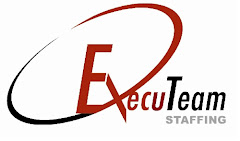Don’t allow yourself to be intimidated by the telephone interview. You can sail through it easily. The phone interview is often a prelude to a face-to-face meeting and is frequently used by employers, recruiters, and headhunters to select a pool of highly qualified candidates for more in-depth discussions. The preparation, conduct, method of handling questions, and even your body language are as likely to impact the outcome as if you were sitting in the office of the hiring manager. Following are some useful guidelines.
1.Schedule the interview so that there is enough time to do homework and prepare. Reschedule surprise interviews. Tell the caller that you have a conflict and arrange a mutually convenient time that allows you at least 24 hours to organize and plan for the discussion. Make sure to get the name and title of the person with whom you will be speaking.
2.You should be in a quiet area where there are no distractions. That means making sure there are no disturbances. Barking dogs, crying children, background stereo or TV, or any other type of noise or disruption is unprofessional. Make sure your family knows you cannot be bothered. If alerted by your call waiting service, ignore it – and don’t forget to shut off your cell phone. If it is not possible to eliminate disturbances, then arrange to take the call from a location outside of your home or office.
3.Keep pen and paper handy to jot down an address, phone number, or the spelling of a name. It is our recommendation that you do not take notes while being interviewed. Note taking creates uncomfortable pauses in the dialog and you will invariably miss part of what is being said. Write any notes at the conclusion of the interview while the information is still fresh in your mind.
4.Dress professionally. It will make a difference. How you feel about yourself is almost always conveyed in a phone discussion. Assume the same dress and professional demeanor as if your conversation was actually in an in-person meeting. Your attitude will be more positive and you will be more confident.
5.The things you will need to have at hand: a copy of the advertisement to which you responded, a copy of your resume and cover letter, a copy of a two-three minute well rehearsed statement that summarizes your educational and professional background, a listing of your skills and major achievements, and a list of questions to ask the interviewer. Remember that the interview is a forum to exchange information and develop mutual interest in an enduring relationship. It makes sense to be prepared.
6.Practice your presentation with a relative or friend, or in front of a mirror. Smile, it impacts your attitude. Speak clearly and directly into the phone but don’t rush answers. Your sincerity, tone of voice, and method of delivery will substantially impact how you are perceived. Listen carefully to what the interviewer says and if you don’t fully understand a question, then ask for a clarification. The technique of rephrasing or repeating a question, may allow time to better formulate your response. It is absolutely ok to say, “I think I need a moment to get my thoughts together.” Answer yes or no questions with a direct response and then follow with any necessary amplification. Don’t ramble or become long-winded. Don’t interrupt the interviewer. Focus your questions on the issues that appear to be most important to them, the tools or training they provide, and what is expected of you – not on compensation or benefits. Try to avoid silence. Silence for more than a few seconds can be awkward and unpleasant for everyone. If it appears that the interviewer is unsure of what to ask or say next, be prepared with your own questions.
7.Don’t discuss compensation. If the interviewer asks about your current salary or desired income, indicate that you will be happy to deal with those questions in an in-person meeting once mutual interest has been established. Then inquire what salary range has been budgeted for the position. If the job requires relocation, it is important to know the compensation range so additional time is not wasted pursuing a job in which you have no interest.
8.Finally thank the person for the interview, show enthusiasm about pursuing the opportunity, and ask about the next step in the process. Write a thank you note the same day. Follow up with a phone call within two or three days to ask questions that have surfaced since the interview and reinforce your desire to secure an in-person meeting.
- Lawrence Alter
Author Lawrence Alter is president of L.D.A. Enterprises, Ltd.; a Minneapolis based outplacement and career management firm. He is a recognized expert in career growth techniques. Send ideas or questions via email to: LDA@EmploymentClinic.com. Website address: www.EmploymentClinic.com
© Copyright 2010 Lawrence Alter. All rights reserved.
From www.net-temps.com
Wednesday, August 25, 2010
Subscribe to:
Post Comments (Atom)




No comments:
Post a Comment